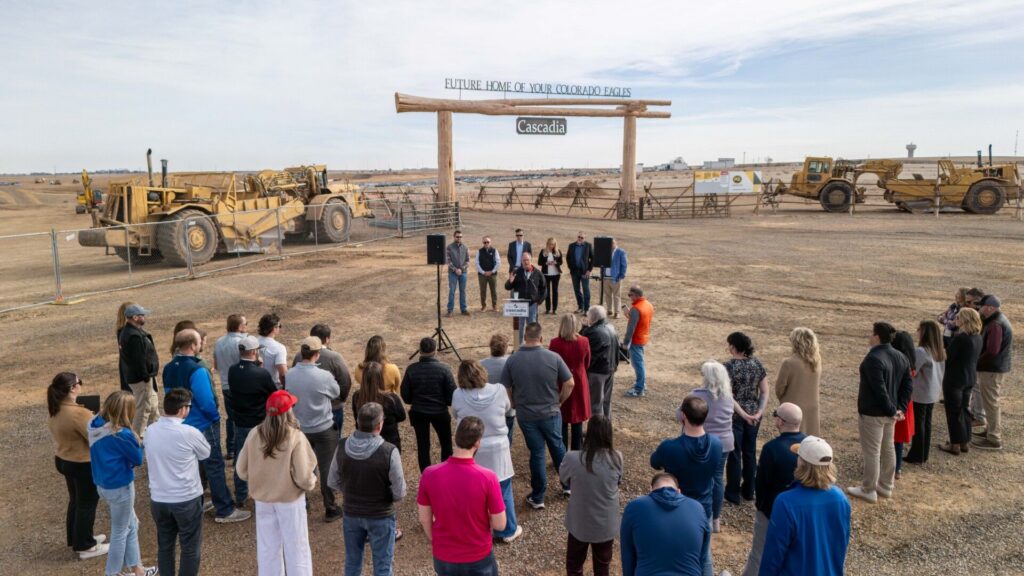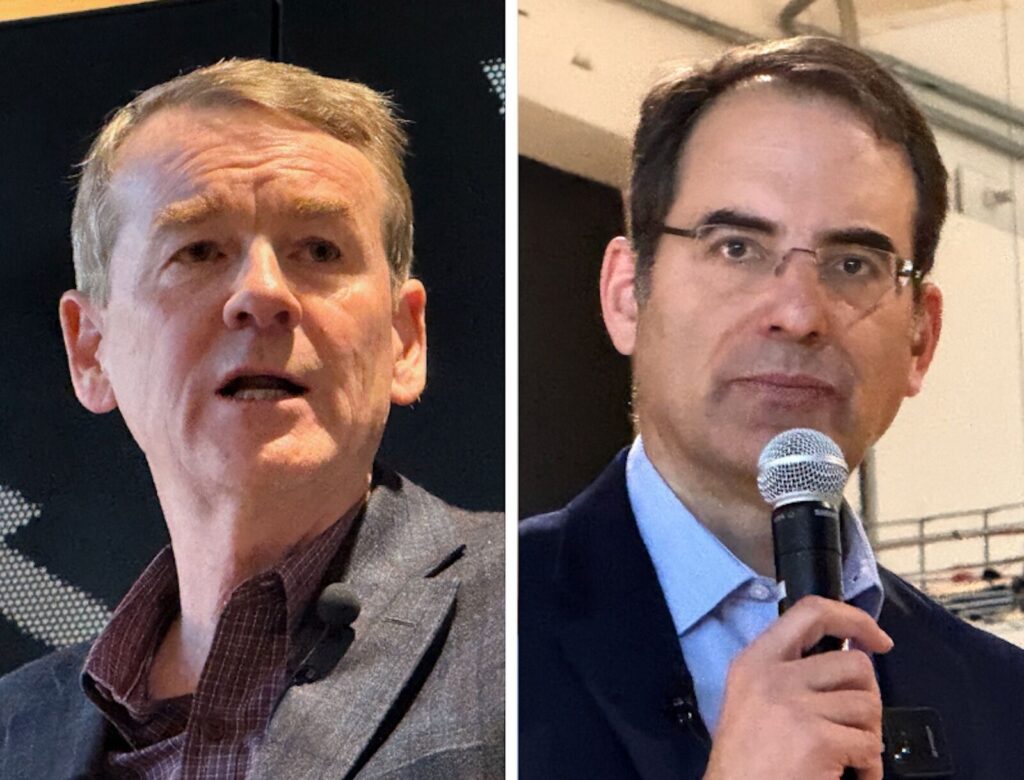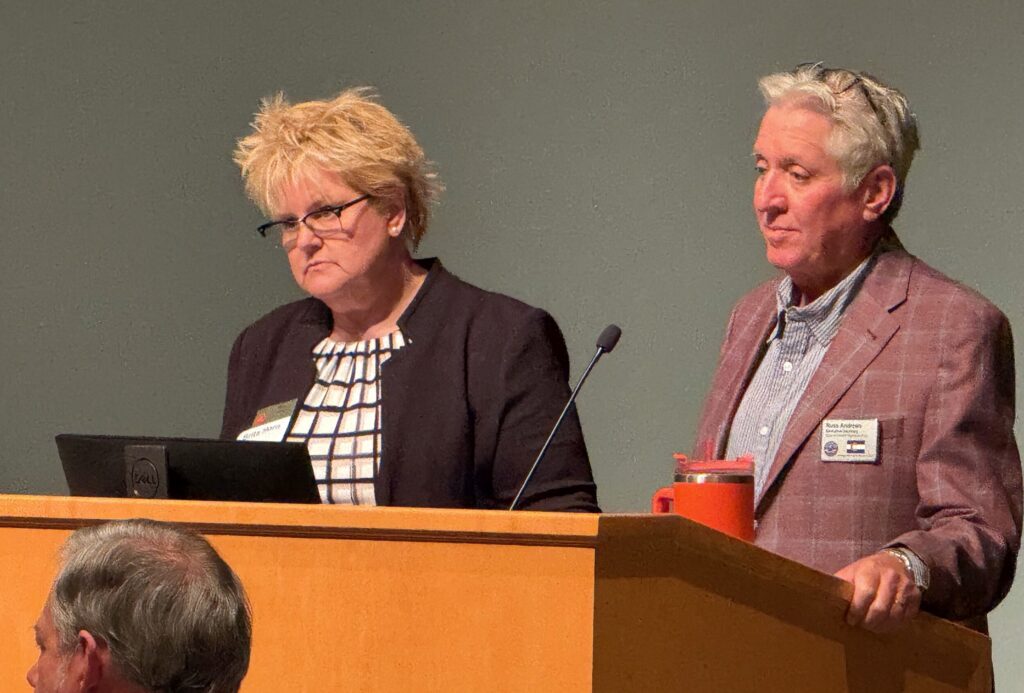Q&A with Jason Salzman: Where activism meets journalism

Let conservatives go ahead and wave off his brand of journalism as slanted and partisan if they so choose; Jason Salzman readily owns up to his leftward leanings – but he’ll tell you facts are facts. The onetime Rocky Mountain News media critic turned progressive blogger, who gamely takes on Colorado’s right-of-center political pantheon, says his bias doesn’t stand in the way of his journalistic standards. Which is why, as he notes in today’s Q&A, he goes after pols, typically on the right, when he feels they’re trading in fake news. It’s also why he calls out newsfolk (I’ve been among them) if he thinks they fall short of their mark.
One part polemicist, one part watchdog; definitely a voice worth hearing amid the din of Colorado politics. Read on for Salzman’s take on Colorado journalism, Republican prospects in the governor’s race, Tom Tancredo’s war the GOP establishment, and more.
Colorado Politics: You are a man for all seasons on Colorado’s political left: You have a background in the mainstream media via the late Rocky Mountain News; you’re a published author of political manifestos; you are a blogger of polemics, yet you also are a sometimes-apolitical media critic who steps out of his own ideological space to call out the media over lapses in journalistic standards. We’re not entirely sure how to pigeonhole you; you call yourself a “progressive journalist and consultant.” How would you describe your calling, and how do you see yourself serving the political conversation in Colorado?
Jason Salzman: I’m happiest when people call me a mycologist after they see my mushroom photos on Facebook or Twitter or visit our Urbanmushrooms.com website, which will help you figure out if you can eat the fungus in your back yard. Or the mushroom on the wet rug in your basement. My parents founded the Telluride Mushroom Festival, and so I grew up in Colorado surrounded by shrooms in the kitchen, forest and elsewhere.
Email me if you’d like to go on a mushroom foray around Sloan’s Lake this summer. I’ll take conservatives or progressives, and I’ll show you which ones are poisonous. Turns out conservatives are able to eat different wild mushrooms than progressives can. Very strange. I’ll cook em up and explain which ones are good for whom. Seriously, call me if you want to learn about mushrooms. I’m easy to reach.
There was a time when I really, truly believed that the world would be cured if everyone ate psychedelic mushrooms, but I grew up and learned you have to be smart and fight.
My way of doing this has turned out to be as a progressive writer and activist. I’m incredibly lucky to be able to be a progressive journalist in Colorado, and the person most responsible for launching me into (mostly) full-time writing is former Rocky (Mountain News) Editorial Page Editor Vincent Carroll, who gave me a shot as the Rocky’s progressive media critic. He is a great editor and writer who saved me from complete humiliation numerous times and taught me how to be simultaneously sharp-edged and reasonable.
In the big picture, that’s sort of what I try to do in my writing and what I try to bring to the conversation. I try to show that bloggers can be biased and still adhere to many of the old-style and reasonable standards of journalism, like correcting errors, openly acknowledging bias, writing under their own byline, sticking to the facts, allowing interviewees to add whatever they want if they feel unfairly quoted, being (relatively) polite, answering questions about their work, like I am now. And more.
In the small frame, I see myself these days as basically a reporter, fact checker – and to a lesser extent a media critic. On the Colorado Times Recorder, I (and others) mostly report on news that’s overlooked by the mainstream media. I cover talk-radio interviews so no one else has to listen to Peter Boyles. So basically a public service. I try to get public officials to remove gross factual errors from their Facebook pages. I try to explain complicated topics that are getting twisted in the news. On my media blog, BigMedia.org, I crusade against public officials who post fake news, and I try to use facts and data to critique journalists and hold them to their own professional standards (which are higher than my own, I admit).
CP: To some of us geezers, it seems it was not very long ago that everyone left of center suddenly started referring to themselves as “progressive.” The term itself is of course old, but it has been given a new lease on life. “Liberal” seems to have gone the way of the CD. What do you think was behind the change? Is it just the usual wordplay of marketing and focus groups, or does it reflect something deeper and more organic?
Salzman: I call myself a liberal and a progressive interchangeably. You can easily find people who have deep philosophical attachments to one term or the other, but all I need is a term that alerts people to my point of view.
The word “liberal” may not poll as well, but I don’t care. The three people who read my blog don’t care either. Actually, it turns out, with all the interest in politics this year, I have expanded my audience to five. It’s a great time to be a blogger. So much material.
Jason Salzman
CP: Some of your adversaries say you only pick on the right. Do you ever call out your allies on the left?
Salzman: Pick on the right! Are you kidding? I voted for Ralph Nader in 2000. I repented, but for most of my life I thought the two parties were, as Nader said, Tweedle Dee and Tweedle Dum. But what’s happened is Tweedle Dee (the Democrats) is still mostly Tweedle Dee but Tweedle Dum (the Republicans) have gone completely mad – or at least too many of them in high places. So I don’t pick on anyone unless they bring it on themselves by spreading misinformation, bias, lies, falsehoods, inaccuracies, bigotry, hate, errors, meanness and the like.
So, yes, I call out the left. When Democrats accidentally spread fake news, I ask them to remove it, and I compliment them when they do so. I held State Rep. Jovan Melton, who’s stellar in so many ways, accountable for the thin factual basis for his support of predatory lenders.
CP: You have been very vocally challenging the 21st century’s successor to the old chain letter – “fake news” – and the penchant of some prominent politicians to pass it along via social media. Many of your targets reside on the right. Do you believe there is something about the conservative mind-set that opens the door to fake news and says, “Come in”? If so, what plays into that?
Salzman: Good question. I try to find fake news from Democrats all the time, and there is less of it from them out there, according to my definition, which is: false information, packaged as news and proven false by Factcheck.org, Politifact, Snopes, or a credible news outlet.
I repeatedly beg conservatives to send me fake news (that has been promoted by the left) and they repeatedly ignore my pleas. And I also beg them to come up with a better definition of fake news, if they don’t like mine. They often respond with something like, “Everyone has to decide for themselves what’s fake news.”
Many conservatives feel embattled and betrayed by the professional news media in Colorado, even though there’s no factual basis for this irrational, data-free feeling they have. So they look for alternative sources of news (e.g., talk radio) and alternative communities of alienated news consumers (e.g., talk radio). They refuse to accept professional journalists as the imperfect arbiters of truth in civil discourse.
So conservatives are more likely to embrace false information from itinerant and shadowy sources. Some of this turns out to be fake. And bingo, I bust them for spreading fake news. And to their credit, over the past year, after talking to me about it, many have at least considered taking it down and issuing a correction. Some have done so.
Sometimes I call out officials for spreading fake news, and they respond by saying I’m fake news because I’m funded by progressives. I’m not perfect, but if you think I’m spreading fake news, as State Sen. Tim Neville once told me when I asked him for his definition of fake news, talk to me about it when you see it. I’m easy to reach.
CP: In your blogging about Tom Tancredo, you seem almost sympathetic – at least, regarding his years-long joust with the Republican establishment. Do you believe Tancredo really could win it all in the governor’s race if only the GOP leadership didn’t stand in the way? Is he a genuine threat to Democratic dominance in the Colorado governor’s mansion? Or, is he as his critics contend, a bigger threat to his own party’s unity and its hopes of ever electing another Republican governor?
Salzman: I don’t like power brokers in either party. I mean, I caucused for Bernie. So am I sympathetic to Tanc? On the issues, not at all. I’d die if he were governor. I love undocumented immigrants. I love single-payer health care. I love public education. (My second of two kids is at East High.) I love, love, love love the government. And so on.
On the other hand, the story of the attacks on Tancredo by the GOP establishment have not been fully told by reporters, and they’re another window into the way Republican politics in Colorado mirrors the national GOP scene. It’s a great story, truly.
Do I think Tanc could win? I don’t think any of the Republican gubernatorial candidates can win this year in Colorado. It’s gonna be a big Tsunami-sized blue wave. I’m taking bets. Call me. Call collect. Love to hear from you.
I try to show that bloggers can be biased and still adhere to many of the old-style and reasonable standards of journalism
CP: What’s the biggest challenge facing the news media in Colorado today?
Salzman: I wish I could say something other than the fact that journalism, especially newspapers, has no viable business model, especially at the state level, including in a place like Colorado where people should know better and support it. I love government, so it’s natural that I would think the state government should provide funding for journalism. There has to be a shift in thinking about journalism not as a private business but as a public resource that deserves support.
Aside from that, I think Colorado’s political journalists should be more aggressive in tracking down officials who are hiding and, generally, asking tough questions. This makes for both important and entertaining journalism. More ambush interviews. More confrontation. Believe me, I know how easy it is for me to say this and how hard and time consuming it is to get it done. No one respects journalists more than I do. I sat and cried as I watched the The Post last week. It was ridiculous.
CP: What, if anything at the moment, is the biggest challenge facing the Democratic Party?
Salzman: The Democrats can be anti-Trump, but they also need to stand for more great progressive policies. No more Tweedle Deeing around. I obviously lean toward more socialism, but I’ll leave it to smarter people to figure out what would work for the Democrats.














